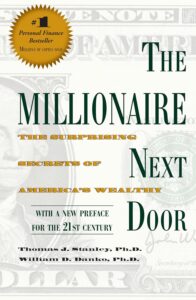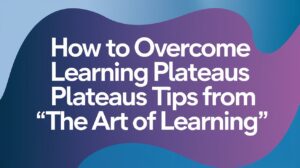Introduction
Co-authored by Thomas J. Stanley and William D. Danko, The Millionaire Next Door has made its own ecosystem of relevance amongst the most influential tomes on personal finance ever written. First published in 1996, this book leads one through the lives of self-made millionaires in America by dissipating some well-accepted myths and highlighting certain aspects that set them apart from the rest of society.
Unlike the stereotype of millionaires living in mansions or driving new sports cars, Stanley and Danko paint a totally different picture: one of frugality, discipline, and smart financial habits. These are “the millionaires next door” who happen to lead uncomplicated lives while amassing a considerable fortune. In this article, we shall look into the key takeaways from the book, see some of the most memorable quotes, and discuss the ways in which readers can apply these lessons to their own lives.
Book Review
The Millionaire Next Door is not your typical self-help finance book. Rather than offering quick tips or get-rich-quick schemes, it presents detailed research regarding how America’s wealthiest people actually live their lives. Stanley and Danko interviewed many millionaires and conducted extensive surveys on them to understand their choices of lifestyle, saving, and general philosophies concerning finance.
The result is a deeply insightful, data-driven analysis of wealth in America. This work questions common myths about the rich, and it underlines the fact that many millionaires are not high-income earners or simply those who have been lucky at their lotteries; they are middle-class people with saving disciplines, shrewd investors who live below their means. Fascinating statistics and stories abound in this book, making it both informative and engaging.
Some of the data may feel a little dated, considering the book originally came out over two decades ago. The basic premises are timeless, though. The step-by-step depth that Stanley goes into serves to disabuse one of the misconceptions about wealth and provides an aspirational yet attainable model for financial success.
It’s separated into several chapters, each having a different topic of discussion regarding how millionaires build their fortunes. From tracking one’s spending habits down to the last decimal place to promoting the value of financial independence, Stanley infuses this book with one key message: that accumulating wealth is more a question of behavior than it is income.
The bestselling The Millionaire Next Door identifies seven common traits that show up again and again among those who have accumulated wealth. Most of the truly wealthy in this country don't live in Beverly Hills or on Park Avenue-they live next door. This new edition, the first since 1998, includes a new foreword for the twenty-first century by Dr. Thomas J. Stanley.
Key Lessons from The Millionaire Next Door
The book indeed has several startling truths about accumulation of wealth that have been the nature of its discrepancy with societal perceptions. Here are some of the most important:
1. Live Below Your Means
One of the most consistent traits of self-made millionaires is their frugality. Rather than upgrade to the latest car model or live in high-dollar homes, these individuals choose to live well below their means. They place a high level of importance on financial independence rather than the appearance of wealth.
2. The Importance of Financial Discipline
Millionaires are not necessarily high-income earners. The difference is that they save and invest a large portion of their income. Stanley differentiates between the “prodigious accumulator of wealth” and the “under-accumulator of wealth.” The PAW who saves steadily will become a millionaire regardless of his income level; the UAW earning a very high income may struggle to become and remain financially independent.
3. Time, Energy, and Money Are Investments
Millionaires understand that the main things they invest in are time and energy. These resources should be invested in fields that promise financial feedback, whether it is business, property, or stock. They don’t waste their precious time on trifles; they make considerate decisions to build wealth.

4. Avoid Lifestyle Inflation
Probably the core lesson of the whole book is that while income increases, one should not increase his or her expenses proportionally. And that is yet another trap people fall into-spending more when they earn more, so-called “lifestyle inflation.” But millionaires do not increase their spending habits much and thus can save and invest a bigger part of their earnings.
5. Wealth is built up, not flashed about.
Key takeaways from this book are that true wealth is not about what one has but rather about outward displays of success. In fact, it should be measured by net worth and financial independence. Many millionaires drive used cars, live modestly in modest homes, and avoid conspicuous consumption. This is a big contrast from what the media seem to portray-a rich person being one who really shows off his or her wealth.
6. Be Your Own Financial Advocate
Millionaires often act as their own financial advisers. They do the homework, carefully plan their investments, and take responsibility for their financial futures. Instead of relying solely on professionals, they educate themselves about finance, taxes, and investments. This way, they can make better choices and avoid costly mistakes.
7. Rich People Prioritize Long-Term Goals
The millionaires profiled in the book are not focused on short-term gratification. Rather, they had long-term financial goals and they designed a plan to achieve those goals, whether early retirement, sending their kids to college debt-free, or building a legacy for generations to come.

Best Line from the Book
One of the most potent lines from The Millionaire Next Door sums up the philosophy of these self-made millionaires:
“Whatever your income, always live below your means.”
This trite, yet profound, statement encompasses in a nutshell the whole argument of the book: building wealth is not about how much you earn, but rather about saving and investing. It is a strong reminder that financial success is up for grabs for all who adopt a disciplined approach toward money management.
Personal Application of the Lessons from the Book
The Millionaire Next Door gives readers a set of pretty hands-on, action-oriented suggestions on how to manage one’s finances. Here is an actionable checklist based on the main findings in the book:
1. Plan Your Budget in Detail
Account for every dollar earned and spent. Just like the budgets maintained by the millionaires featured in the book, draft one for yourself, too, and follow it religiously. In this way, you will be able to identify areas where you can cut back on unnecessary spending to save more money.
2. Automate Your Savings
This is one of the easiest ways to make sure that you save constantly. Set up automatic transfers towards your savings or investment accounts. This technique will ensure that you pay yourself first before spending money on things you don’t really need.
3. Don’t Try to Keep Up with the Joneses
Society will consistently encourage us to “keep up with the Jones’s” through the buying of luxury cars, homes, or gadgets that are state of the art. The millionaires in the book avoid this trap by placing their long-term financial security over short-term appearances.
4. Invest Wisely
Learn about different types of investments and build a diversified portfolio that will further long-term financial goals. Usually, investment tendencies of the millionaires in the book are toward appreciation rather than those kinds of investments that depreciate, such as real estate and stocks, not cars or high-priced electronics.
5. Financial Independence Over Status
The book is more about freedom with money, not with the flashy display of money. Change your mindset toward freedom: to be free from debt, to be free from financial stress, and to have the ability to make choices based on values, not constraints.
6. Teach Financial Literacy
If you have children or younger family members, be sure to pass on the principles of financial discipline to them. Teach them to save and invest money and avoid debt, so that they can be set up for a lifetime of financial success.
The Long-Lasting Impact of The Millionaire Next Door
Wrapped up in the core of The Millionaire Next Door is a kind of philosophy that has resonated with readers over the years. In an age when consumerism has run amok and social media furthers the desire for stuff, the book has provided a voice of reason about wealth. It actually shows readers that financial success can be achieved regardless of income level, as long as the right habits and proper mindset are adopted.
And in today’s fast-moving world, where financial pressure upon the people is growing tighter, the lessons this book imparts are more relevant. Owing to student loans, mortgages, and higher living costs, many find it difficult to build any wealth. On the contrary, through the adoption of the principles outlined by Stanley, one is able to make meaningful steps toward financial independence.
Conclusion
In fact, The Millionaire Next Door is an essential reading for anybody trying to understand habits or behavior that may eventually lead to wealth. Thomas J. Stanley’s findings offer a refreshing and achievable look into what financial success entails: one would realize that all the same, it is actually about making smart choices, living disciplined, and living within one’s means.
Thus, readers of the book will initiate managing and controlling their financial futures through smart investments, eventually becoming “the millionaire next door” by applying the lessons contained in this book.







1 thought on “Building Wealth: Exploring ‘The Millionaire Next Door’ by Thomas J. Stanley”